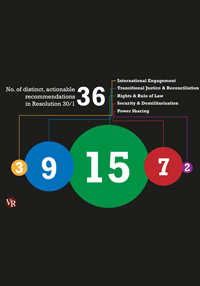Right to Information: Discourse and Compliance in Sri Lanka
|
The report Right to Information: Discourse and Compliance in Sri Lanka was compiled in collaboration between Verité Research and Democracy Reporting International (DRI). Verité Research analysed the right to information in the Sri Lankan context while Democracy Reporting International detailed...
continue reading







